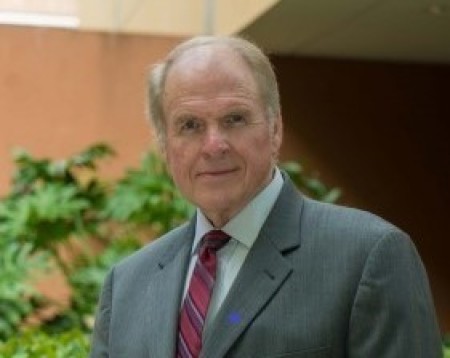Reset and the ‘radical’ church (pt 1)
The hunger for the Millennium rages in the human soul.
The latest evidence of this is the emergence of the “reset” obsession in contemporary culture as a subconscious search for God’s Kingdom — the true utopia.
Now in my eighth decade of life I think of all the “reset” movements I have observed. All have aimed at the creation of a new world — forced or otherwise.

For some it means a realm whose spiritual, moral, social, cultural, and philosophical boundaries have been hacked down with the fervor of bandana-bedecked revolutionaries storming the barricades in 1871 France, or grim Bolsheviks assaulting the bastions of czarism in 1917 Russia, or Hitler’s Brown Shirts ripping away humanity and freedom in 1920s-30s Germany.
The longing for the Kingdom of God is in all of us. The passion for the New Jerusalem is so powerful we must yell loud to shut up the urges to seek it first, above all else.
The Apostle Peter writes that “we are looking for new heavens and a new earth, in which righteousness dwells.” (2 Peter 3:13) However, the anticipation of many re-setters is not for “righteousness” but a world wherein anarchy dwells.
The inevitable descent into dystopian chaos is the reason fallen humans can never bring in the Kingdom. Leftist progressivists as well as conservative utilitarians keep on trying.
The passion for reset is evidence.
Church re-setters are afflicted as well. For them, the reset is speedy growth, new displays of the novel and sensational, and, on the left and some facets of the right, the dissolution of biblical authority and doctrinal boundaries in the endless quest for a “more relevant” message.
As religion editor for The Birmingham News in the 1960s I covered many church convocations, assemblies, and conventions in the early days of the quest for the reset — though the term was not in vogue.
I was present in St. Louis when Methodists intensified their attempts at reset. I was in Atlanta when the discussions deepened that would lead ultimately to the founding of the conservative Presbyterian Church in America (PCA). I was at Notre Dame in Indiana when a convocation of the Episcopal House of Bishops was almost taken over by disruptors demanding reparations.
The problem was so distressing to an Episcopal Vestryman (who happened to be the mayor of Birmingham) that he called me at my hotel at daybreak after reading my reports from South Bend, voicing the question of many of his co-parishioners: “What’s happening to my church?”
In Augusta, Georgia, at another Episcopal Bishops’ meeting I sat in a small room with former California Bishop James Pike as he told me why and how he, a scholarly theologian, was moving into the occult.
On another occasion I questioned Professor Thomas Altizer of Atlanta’s Methodist-sponsored Emory University regarding his initiative to resurrect Nietzsche and his “God-Is-Dead” theology.
Not long afterward I was at The Southern Baptist Convention in Dallas interviewing intensely conservative pastor W.A. Criswell about the crisis of biblical authority and the rise of neo-orthodoxy in that denomination.
It was reset, reset, reset everywhere I went in those days. The reset-quest actually began with the onset of the post-denominational age.
And it has not stopped. Now I see all these events, and more, were attempts to find the right place on the theological, strategic, and institutional dials.
In 1973 I found myself sitting in a re-setter’s chair when I became a pastor.
The little church deep in south Alabama very much needed a reset, but I had no idea how to bring it about. In the early 1970s the church growth movement was aborning and quickly began to flourish. I did not know which method to adopt, which sage of church growth to follow.
In short, I did not know where to start. I prayed for an answer, while wrestling with the literature, tapes, and church growth workshops.
Along the way, I found that the resetting radicals were not radical enough.
One Sunday in the early 1970s I had been invited to attend a worship service at the White House that President Nixon convened from time to time. Elton Trueblood was the preacher. He focused on the word, “radical.” The sermon made a deep impression on me that is still present.
“Radical,” Trueblood reminded us, comes from the Latin, radix, meaning “roots.” A couple of years later, as a pastor studying church growth methodologies, the idea began to stir in me that merely to rely on contemporary theory was not “radical” enough, and that the “roots” of church growth were in the incarnate ministry of the Lord Jesus Christ.
A jarring realization struck: The Lord Jesus Christ in His incarnate ministry never lacked for a crowd... Don’t seek church growth, but to minister as Jesus ministered, and “church growth” will happen.
What did Jesus do in His ministry in the world as the incarnate Son of God?
That question became an obsession.
I went back to the writers who had penned the best church growth “manuals” available: Matthew, Mark, Luke, and John. As I studied the nature of Jesus’s earthly ministry, I saw that He did five essential things (and much more, as John writes in 21:25).
- Jesus worshipped
- Jesus interceded
- Jesus proclaimed the Gospel of the Kingdom
- Jesus made disciples of those He reached
- Jesus served human need
(We will explore each of these in the next installment of this brief series.)
Contemporary need in society begs for a reset in the church. However, church leaders must dare to be truly “radical,” and recover the incarnational ministry of our Lord.
Wallace Henley is a former pastor, White House and congressional aide, and author of more than 25 books. His newest is Two Men From Babylon: Nebuchadnezzar, Trump, and the Lord of History, published by Thomas Nelson.






















